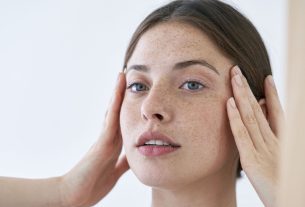Faffbet: Migraine is a neurological condition that can cause severe headaches, often accompanied by other symptoms such as nausea, vomiting, and sensitivity to light and sound. The exact cause of migraines is not fully understood, but research suggests that a combination of genetic and environmental factors may be involved.
Some common triggers for migraines include:
1. Hormonal changes: Fluctuations in estrogen levels, such as those that occur during menstruation, pregnancy, or menopause, can trigger migraines in some people.
2. Food and drink: Certain foods and drinks, such as aged cheeses, chocolate, caffeine, and alcohol, can trigger migraines in some people.
3. Stress: Emotional stress or tension can trigger migraines in some people.
4. Changes in sleep patterns: Too much or too little sleep, or changes in sleep patterns, can trigger migraines in some people.
5. Environmental factors: Bright lights, loud noises, strong smells, and changes in weather patterns can trigger migraines in some people.
6. Genetics: Migraines may run in families, suggesting a genetic component to the condition.
It’s important to note that not all migraines have a clear trigger, and what triggers a migraine in one person may not trigger it in another. Additionally, some people may experience migraines without any identifiable trigger.

How can I prevent migraines?
Askmarvin: Preventing migraines can be challenging, but there are several strategies that may be helpful. Here are a few suggestions:
1. Identify and avoid triggers: Keep a diary to identify triggers that may be causing your migraines, and try to avoid or minimize exposure to them.
2. Maintain a regular sleep schedule: Getting enough sleep and maintaining a regular sleep schedule can help prevent migraines.
3. Manage stress: Practice relaxation techniques such as deep breathing, progressive muscle relaxation, or meditation to help manage stress.
4. Exercise regularly: Regular exercise can help reduce the frequency and severity of migraines.
5. Stay hydrated: Dehydration can trigger migraines, so make sure to drink plenty of water throughout the day.
6. Eat a healthy diet: Eating a well-balanced diet and avoiding trigger foods and drinks can help prevent migraines.
7. Consider medication: Talk to your doctor about medications that may help prevent migraines, such as beta blockers, antidepressants, or anticonvulsants.
It’s important to note that what works for one person may not work for another, so it may take some trial and error to find the strategies that work best for you. Additionally, some people may require a combination of different strategies to effectively prevent migraines.
What are some common trigger foods and drinks?
Certain foods and drinks are known to trigger migraines in some people. Here are some common trigger foods and drinks:
1. Aged cheeses: Such as blue cheese, cheddar, feta, and parmesan.2. Chocolate: Especially dark chocolate.
3. Caffeine: Too much caffeine or sudden withdrawal from caffeine can trigger migraines.
4. Alcohol: Especially red wine, beer, and whiskey.
5. Citrus fruits: Such as oranges, lemons, limes, and grapefruits.
6. Processed meats: Such as hot dogs, deli meats, and sausages.
7. MSG and other food additives: Such as nitrates and nitrites.
8. Artificial sweeteners: Such as aspartame.
9. Fermented or pickled foods: Such as sauerkraut, kimchi, and pickles.
It’s important to note that not all people with migraines are affected by these trigger foods and drinks, and some people may have other trigger foods that are specific to them. Keeping a food diary can be helpful in identifying trigger foods and drinks. If you suspect that certain foods or drinks may be triggering your migraines, try eliminating them from your diet to see if your symptoms improve.




